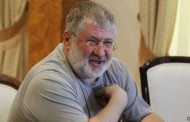The most devastating reproach historians are likely to make to Barack Obama’s record in the White House is his devastating failure in foreign policy — a failure that stems from his willingness to leave the warrior ideologues of the State and Defense Departments in place after he became president.
To them he added ideologues of a new and equally interventionist persuasion, which he found congenial: that of humanitarian action, scarcely relevant in resisting the Islamic caliphate that emerged as a major force in the concluding half of his second term. By then he also faced a Republican congressional majority distinguished by its ignorance — worse than his own in foreign policy matters — and its vindictiveness.
He arrived in office to a military leadership lacking a political strategy to shape its tactics in the Middle East and Afghanistan. When he asked for options and political counsel on ending the Mideast wars — as he had promised the electorate — he was insolently given settled plans by the generals for prosecuting the wars to victory.
Iraq in fact was eventually abandoned in a condition of political wreckage and sectarian conflict, and Kabul’s leaders have convinced the United States to remain in Afghanistan to prevent the same outcome, which we may fear will nonetheless eventually arrive.
He and the military leadership insisted on a useless and destructive intervention in Libya, with devastating consequences throughout northeastern Africa, and in the Syrian civil war they searched in vain for “moderate” rebel allies to overturn Bashar Assad. Obama would later rue the lack of Assad’s cooperation when the forces of the Islamic State group arrived. With respect to Israel, Obama accepted complaisantly — until one week ago — the defiance and disdain of Israel’s Prime Minister Benjamin Netanyahu.
He left dealings with Europe, and with the U.S.’ most important and dangerous interlocutor, President Vladimir Putin of Russia, under the controlling influence of a neoconservative cabal in the State Department, committed to reckless policies of American and NATO expansion in Northern Europe.
However, if Obama is to be blamed for these errors, it is also true that his policies have reflected a consensus in the U.S. governing class and popular opinion alike that America must always be “first.” This has been the guiding presupposition of the nation and its elite, the majority of its foreign policy intellectuals and its mainstream newspapers and other makers of opinion.
The invasion of Afghanistan, the search in Iraq for the weapons of mass destruction that “had” to be there, the destruction of the Taliban government in Afghanistan, and disbanding of Iraq’s Ba’ath Party, army and the existing Sunni apparatus of Iraq’s government — all were welcomed by most of the American policy community.
But history’s judgment of Obama’s foreign policy will likely hang on the outcome of the American-backed coup in Kiev in February 2014. It was intended to bring about Ukraine’s eventual adhesion to the European Union and ultimately to NATO (despite earlier U.S. assurances to the contrary).
The cease-fire between Ukrainian forces and Russian insurgents that precariously prevails today was brought about by Franco-German diplomatic intervention to pre-empt declared American intentions to supply Ukraine with heavy weapons to expand the war against the insurgents.
The circumstances surrounding the instigation of this crisis have yet to be seriously investigated by the American press, and Russian claims that it was a hostile American act have been dismissed without solid evidence by American and NATO spokesmen and officials.
European opinion and most of the European press, accustomed to follow the American lead in major foreign policy matters, have expressed notable doubt about the origin and purpose of the current American and NATO roles in Ukraine, which seem to have been to provoke an unwelcome war with Russia.
Last weekend, the German weekly Der Spiegel published an investigation of the frequently inflammatory statements of NATO’s commander, Gen. Philip Breedlove (a U.S. officer), regarded by the German government as the leading figure in an American effort “to thwart European efforts at mediation.”
Much of what he says is regarded in the chancellery in Berlin as “dangerous propaganda,” which Germany’s Foreign Ministry has protested to the NATO secretary general.
Spiegel writes that “Obama seems almost isolated. He has … done little to quiet those who would seek to increase tensions with Russia and deliver weapons to Ukraine. Sources in Washington say that Breedlove’s bellicose comments are first cleared with the White House and Pentagon. … (The general’s role) is that of increasing the pressure on America’s more reserved trans-Atlantic allies.”
But to what purpose? Surely not war? Or regime change in Russia?
This is a question for which it seems impossible to find an answer — or even a discussion — in the American media. Europe has no answer. Perhaps even Obama doesn’t know. Is it to be left to the historians.
By William Pfaff.




Recent Comments
Natali Sapphir in: В Киеве переименовывают все, что связано с Москвой
Новые названия-это и есть "Жити по-новому", экономические и политическ ...
Natali Sapphir in: The meeting of the heads of the FAM of countries of Norman Four has not been planned
You are right! Nothing. ...
Artem ADE in: Виталий Кличко выехал на полигон учиться спасать людей в случае чрезвычайных ситуаций (ВИДЕО)
Эх... Виталий Виталий... ...
Daniel in: Russia may ban fruit imports from Serbia: RIA
Great news Russian Brothers! Serbia and the Serbs are occuoied by our ...
Randolph Kraus in: The meeting of the heads of the FAM of countries of Norman Four has not been planned
what can they accomplish while the us is supplying hardware? ...